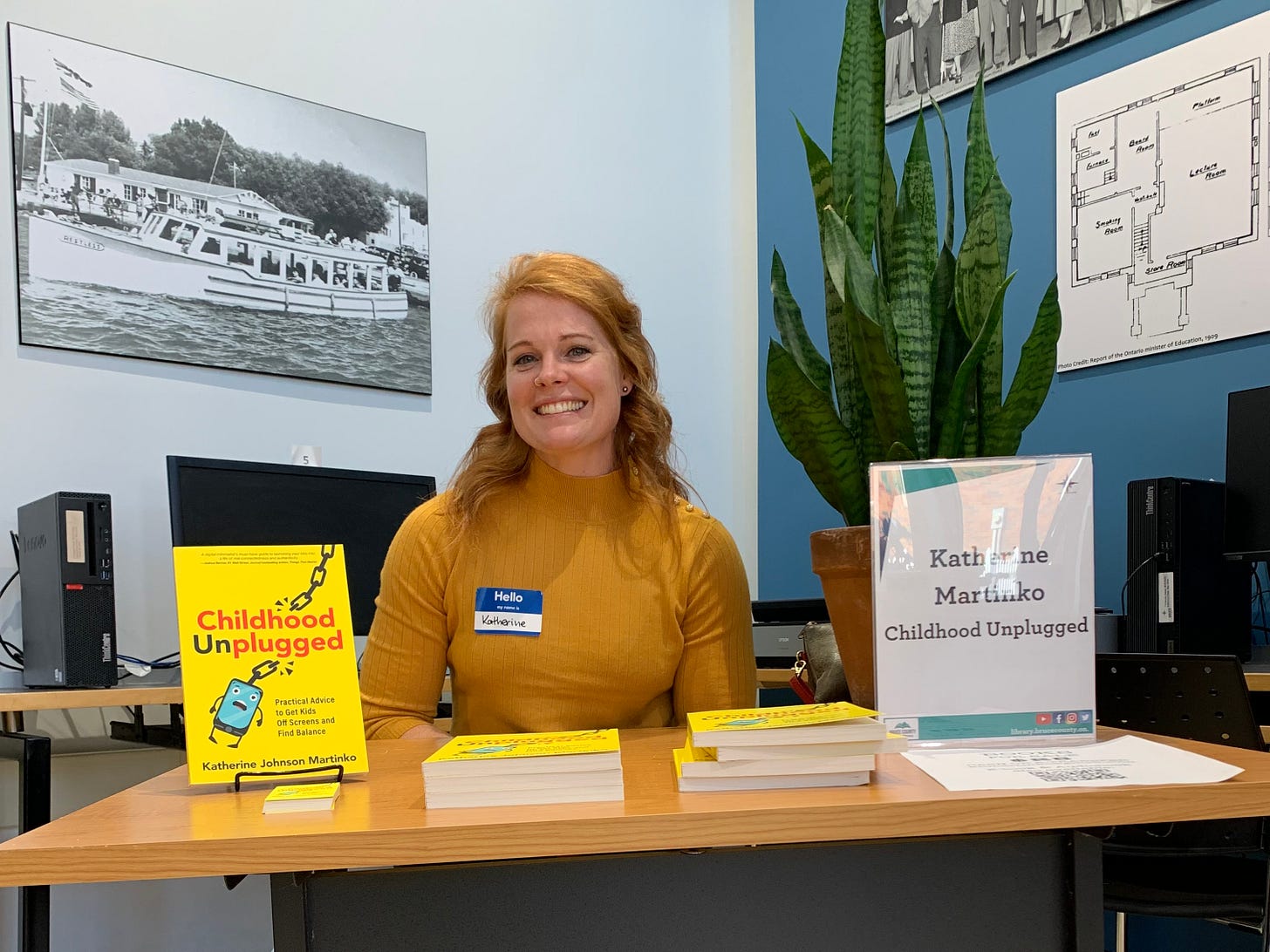Three Things, Week 45.23
The Cocaine-Kale Phone Protocol, a Yale prof on the secret to successful kids, and why phones are the problem
This week kicked off in the most marvellous of ways—with a Monday night doughnut party. This is an annual tradition that usually happens on Halloween, but because we all felt under the weather last week, it got postponed. I made an enormous batch of potato-based dough and rolled out nearly 100 doughnuts, setting them to rise on every baking sheet I could find in the house. By the time guests arrived at 7pm, they’d puffed up and were ready for frying, glazing, and sprinkling with cinnamon sugar. By the end of the night, there were only six doughnuts left and we all rolled ourselves to bed, satisfied.
I derive profound satisfaction from feeding people. A unique form of social bonding occurs when the preparation of food is shared by people, who then eat it together. It’s especially fun when the project involves a slightly more complex recipe than one might prepare at home on a regular basis, like doughnuts or bagels.
Now, on to the Three Things I’ve been contemplating this week, which have a distinct smartphone theme, as you may notice…
1. The Cocaine-Kale Phone Protocol

George Mack wrote on Twitter about his strategy for dealing with the “smartphone paradox”, defined as your phone being a gateway to the world’s best knowledge and its best distractions: “It’s like having the best teachers, strip clubs, and social clubs in your pocket 24/7.”
Rather than try to balance it with willpower, Mack owns two phones. His Kale Phone only has useful things on it, like maps, Uber, Kindle, notes, and emergency calling to 2-3 numbers. His Cocaine Phone has all the goods, like social media and full contacts. He only allows himself to check the Cocaine Phone after 12pm on weekdays and on weekends. He can check the Kale Phone whenever he wants, but it’s too boring to feel attractive.
He writes, “What are the impacts? The Kale Phone resets your baseline. Your Cocaine Phone feels too intense after 60 minutes per day. You start to crave the Kale Phone.” He says many people have messaged him to say this has fixed their smartphone addiction.
While I don’t love the idea of having two phones, I can see how this would be a solid solution for someone with a real problem. More and more, I’m hearing mention of physical separation from one’s device in order to control the impulse to use it. James Clear mentioned it in a podcast with Tim Ferriss, saying he leaves his phone in another room until noon each day. I may start trying that.
2. Yale Professor: Wait to Give Your Kid a Phone

Want happy, successful kids? Laurie Santos, a professor psychology at Yale University, recently said that you should wait as long as possible before giving them a phone. She told CNBC Make It, “I think the more we can hold off on giving kids technology—the longer, the better.” Yay!
Santos went on to comment on the sheer number of notifications that teens, particularly, are receiving daily. (I wrote about this new research a few weeks ago.) “Teenagers are getting on the order of 200 notifications from their phones today. These are brains that are forming and trying to pay attention in school [while their phones are going] ding, ding, ding.”
Plus, we know that they’re not using their phones to learn coding or make digital art. Come on, people. Those kids are scrolling social media and watching videos, hardly brain-building work. This, Santos said, is likely to encourage poor mental health—and it affects kids differently than adults. Kids’ brains just aren’t as resilient as adults’, as they’re not yet fully formed.
It's refreshing to hear someone repeat the phrase I’ve been using for a while now: Delay, delay, delay! Give them toys instead.
3. Yes, It’s the Phones
Jean Twenge, renowned psychology professor, has waded back into the debate over what’s causing the spike in teens’ mental health problems. As the author of iGen and Generations, she has long made the case for phones being the reason for teens’ increased depression, loneliness, and suicide since 2011.
In a new article, she examines 13 alternative arguments for why teens are failing to thrive: It’s the economy or the pandemic! It’s because of climate change! It’s school shootings! It’s because they have too much homework! It’s the opioid epidemic! It’s because parents are depressed! It’s part of a normal suicide cycle that existed in the ‘90s.
Twenge writes, “Some explanations are easily refuted, some seem plausible at first but don’t stand up to further scrutiny, and others may work alongside smartphones and social media in causing the adolescent mental health crisis.” Ultimately, she concludes that phones are still the common denominator and the root problem, supported with evidence, as always.
It’s an easy-to-read piece with powerful graphs illustrating the statistics she discusses, so do check it out (and her work in general) if you’re interested in getting into this topic more deeply.
In Other News
I had an author event at the Port Elgin Public Library last weekend that was a great success. There were eight local authors in total, all of whom set up tables with books for sale and talked to interested visitors who dropped in during the two-hour event. I had some lovely conversations with people, and it was fun to be in the company of other writers. Our work tends to be so solitary that it’s nice every now and then to be reminded that others do and love it, too.
If you’re in Bruce-Grey-Huron county area, there’s another library event coming up on Tuesday, November 14 at the Mildmay Library branch. I’ll be giving a talk at 6:30 p.m.
You Might Also Like:
3 Things: Crime novels, Steinbeck’s trick to getting kids to read more, and 9 months since my layoff
3 Things: Mr. Rogers on parenting, why Halloween rocks, and rejecting teenage ‘phombies’
3 Things: Thoughts on solitude, helicopter parenting, and ‘time confetti’







I'm a little late to catching up with posts (travel followed by sickness, from the highs of exploring Spain to the lows of an energy-sapping infection), but this was so timely to read. My sister is struggling with my 13-year-old niece's addiction to her phone. It's difficult for her to set boundaries now as my niece has already had the phone for a year, with unfettered access. She's on it until the early hours of the morning, it's affecting her schoolwork (being on the school bus at 8 pm having stayed up until 1 pm on the screen) and causing awful behaviour issues.
I would love to be able to help in some way, but unsure if a talking to from an aunt would make any difference. I'm convinced that going no-tech until kids are old enough to manage it responsibly is the best way, or at least impose strict boundaries right from the start.